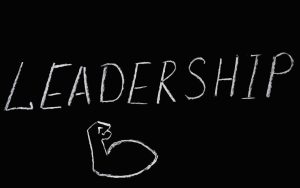Employee experience plays a crucial role in the success of your business, and understanding individual strengths is at the heart of creating positive experiences. If team members don’t feel engaged, satisfied with their jobs, or supported by their leaders in leveraging their unique talents, the entire team suffers. Many entrepreneurs struggle to maximize positive employee experiences, but tools like the HIGH5 strengths test offer a solution. By identifying and harnessing each employee’s top strengths, you can create a work environment where individuals thrive, leading to increased engagement, job satisfaction, and overall team performance. This strengths-based approach is the key to unlocking your team’s full potential and driving your business forward.
They may try to create faux auras of inclusivity, but true inclusion, acceptance, and positivity require much more effort than a simple speech or hanging a motivational poster. Instead, you have to become committed to understanding and hearing your employees.
In this article, we will discuss what the employee experience is and how you can maximize positive effects in your team’s experiences.

What is Employee Experience? Definition & Meaning
Every team member has a unique employee experience, shaped by their individual strengths and how well these align with their role and the organization. This experience begins with the first impression they have of your brand from the job description, to the moment they leave the company. To truly understand and enhance this experience, many organizations are turning to strengths assessments like the HIGH5 test. By identifying an employee’s top strengths early in their journey, you can tailor their experience to maximize engagement and satisfaction. The HIGH5 strengths test provides valuable insights into what motivates and energizes each team member, allowing you to create a more personalized and positive employee experience from day one.
Your company culture, their relationship with bosses, how often conflict occurs, the stability of the work environment, if their employee journey results in growth, and many other factors all influence one’s experience at a job. In fact, everything they feel, see, or think about the company is a part of the employee experience.
Someone who wants to maximize a team’s positive experiences needs to stay with them and ask for feedback throughout the entire employee lifecycle. The employee lifecycle is the process of growth and maturation an individual goes through while working for a company.
As a leader, those maximizing employee experience will consistently seek to hear their team’s thoughts and adjust their business plans accordingly.
There are a few main stages within the employee experience timeline. The first of these stages is the recruitment stage. This would include the first impression of the company, the interview, and getting accepted into the business.
The way your job ad was written, how the interviewer conducts themself, the length of the interview, and how long it takes to be finally recruited all play a role in the employee experience.
Next comes the onboarding stage. Here, the new employee is introduced to the business and begins understanding the company culture as well as the internal processes of a business. Initial acceptance, the clarity of directions, and the willingness of team members to help are all factors that play a role in one’s experience.
After this, the individual has to grow as an employee. This stage is referred to as development. Employees are exposed to a variety of new tasks and learn many new skills. How often promotions are given, the opportunities given to employees, the emphasis on productivity, and feedback systems are included here.
Retention is the next phase for an employee to experience. At this point, individuals have been interwoven into the fabric of a company. They are likely accepted into the organization and have a defined role in the company.
Your retention strategy plays a strong role in the employee’s experience at this stage. In other words, what you do to keep employees loyal and motivated has a strong impact on their experience. It is multiple times confirmed in statistical research on employee motivation in the US, that high motivation levels have a huge impact on employee performances.
Finally, the last stage of an employee’s experience is the exit. Even the happiest employees must leave your company at some point. The reasons for their departure are intrinsically tied to their employee experience.
For example, if they leave due to consistent disengagement or abuse from leaders, this is a crucial element of their employee experience. Likewise, if they leave because another company provided a better employee experience during an interview, this also reflects poorly on their experience at your business.
Pro Tip From HIGH5
Integrate strengths discovery into your onboarding process. Use the HIGH5 test to help new employees identify their top strengths and discuss how these can be applied in their new role. This sets a positive tone for their employee experience from the start.
Why Is Employee Experience Important & Their Benefits?
A focus on employee experience benefits not just the entire workplace, but ultimately, it also benefits the business owner. When a team works in an environment that recognizes and leverages their individual strengths, they are more motivated, passionate, and productive. This is where tools like the HIGH5 strengths test become invaluable. By helping employees identify and understand their unique strengths, HIGH5 empowers organizations to create tailored experiences that resonate with each team member. This strengths-based approach leads to increased engagement, job satisfaction, and overall performance, creating a positive ripple effect throughout the entire organization
On the other hand, consistently positive experiences bring the exact opposite effects. They bring prosperity and profit to everyone.
More specifically, some of the top benefits of facilitating positive employee experiences include:
- Increased brand loyalty and lower turnover rate
- Greater trust in you as a leader, thus boosting your company reputation
- Empowers employees to stay motivated and focused
- Increases the entire business’s ability to meet and succeed their goals
- Fosters personal growth in team members
- Boosts communication and collaborative measures
- Inspires creativity and logical risk-taking, which are both associated with increased passion
- Allows the business to be more efficient and productive
- Ultimately leads to an increase in revenue and profits
- Enables the establishment of a strong support system within the company
Pro Tip From HIGH5
Create a “Strengths Spotlight” program where employees can share how they’ve used their top strengths (identified through the HIGH5 test) to overcome challenges or achieve success. This not only celebrates individual strengths but also inspires others to leverage their own unique talents.
How To Improve Employee Experience?
Now that you’re aware of the many benefits associated with positive employee experiences, you may be wondering: how can you acquire these benefits? The first step is recognizing that a strong employee experience needs to be a top priority. One powerful way to enhance this experience is by implementing a strengths-based approach using tools like the HIGH5 strengths test. By identifying and leveraging each employee’s unique strengths, you can create a work environment where team members feel valued and empowered. The HIGH5 test provides actionable insights that allow you to tailor roles, assignments, and development opportunities to each individual’s strengths, significantly boosting engagement and job satisfaction.
While employee engagement, work ethic, and efficiency are all also important, focusing on employee experience will allow you to simultaneously address issues with all the previously mentioned factors.
An employee gets their first impression of your brand after reading the job listing. But, their first human interaction (the interview) is arguably even more important for meaningful and lasting experiences.
There are three key features that makeup one’s experience and they must all be addressed for a positive experience to be maximized.
The first element is company culture. This involves your relationship with employees, how employees view their work, the feelings associated with the work environment and coworkers, etc.
Your communication style, management style, mentorship techniques, leadership style, and other elements of your leadership personality all also play a role.

Ask yourself, and more importantly, ask employees: how do you feel when coming to work? What motivates you or empowers you? Is there something toxic in the workplace culture, such as consistent fighting? It is difficult to avoid technology in today’s modern era. As such, it plays a key role in the employee life cycle.
If you can properly use technology, you can harness its power to benefit the employees. Often, outdated technology leads to inefficiency and frustration. It gives employees the impression that you are unwilling to invest in them, or genuinely do not believe in your mission or are incapable of funding your goals.
This clearly negatively affects employee experience. The simple solution to this is consistently upgrading technology. Provide your employees with as many new and efficient tools as you can.
In doing so, you are maximizing their potential and showing you care about their success. In addition, offering other opportunities for growth and development would also be beneficial.
Consider giving employees the option to go to networking events or helping them find mentors outside of the workplace. If possible, you be that mentor. Be the individual who is there to support them and offer advice when it is needed. This shows you care deeply for them and are willing to truly support them.
If you have students in your team, serving as a mentor is especially profound and impactful. This experience could be something that impacts their entire life in a tremendously positive way. Additionally, the workplace environment also thoroughly impacts an individual’s experiences at work.
Think about how much time your employees spend in their workplace. Would it feel good, or be productive, to feel chained to one small room for 8 hours every day? No, and it would serve as a negative employee experience that could lead to resignation.
You as the leader have the ability to change the environment that employees spend a significant portion of their time. The best way to understand the needs of this environment is to directly ask employees. Give them the freedom to bring in certain items from home and express themselves at work.
Try holding a vote on major design elements of the workplace. All of this will positively impact the employee experience within your company.
Pro Tip From HIGH5
Implement “Strengths-Based Check-Ins” with your team. Instead of traditional performance reviews, use these sessions to discuss how employees are using their strengths (identified by the HIGH5 test) in their current roles and explore opportunities for them to apply these strengths in new ways.
How To Design Your Employee Experience Strategy
Your employee experience strategy must be individualized for each team member, and this is where a strengths-based approach truly shines. By incorporating the HIGH5 strengths test into your strategy, you gain deep insights into each employee’s unique strengths, needs, desires, and passions. This understanding allows you to create tailored, positive experiences that resonate with each individual. For instance, knowing an employee’s top strengths can help you assign projects that align with their natural talents, leading to increased engagement and performance. The HIGH5 test provides a solid foundation for designing an employee experience strategy that not only meets but exceeds your team’s expectations.
However, a general employee experience strategy can give you some insights into how to approach the issue of experience and a basic overview of how to address it.
The first step toward creating a sound employee experience strategy is collecting data. Ultimately, the employees will be most impacted by the way you create this strategy.
It is your goal to maximize their positive experiences, retain them as employees, boost passion, instill productivity, and so on. So, why not ask them directly about their thoughts on your past experience strategy? See if they have issues with conflict, task assignment, disengagement, company culture, and other factors that contribute to a negative company-related experience.
Ensure that you keep track of employees throughout the entire employee lifecycle. As previously mentioned, data collection is important. But, you should not only focus on current employees for this data collection.
Have your candidates or newcomers also give you feedback. What was your initial impression of the business? What made you attracted to our company? How did the interviewer conduct themselves? Are you feeling welcome as a new recruit? These are all questions to keep in mind when building your experience strategy.
Then, once you know the gaps in your system, you can address them. Ensure that employees have ample opportunities for growth. Try to mitigate conflict as much as possible.
Bolster communication and strengthen team relationships. Anything that your team members expressed interest in, write it down and try to implement it. Ensure that those around you know you have listened to their advice. This is already a step in the right direction.
Also, you should recognize how employee experience is linked with many other elements of the workplace. For example, consider how customer experience is interlinked with the employee experience. If you are able to boost employee productivity, this results in better customer results and customer satisfaction.
As such, more customers will likely leave positive feedback for your business. When employees see this, they are validated. They see the positive impact they leave on the world and begin to have a more positive view of their work experiences.
Pro Tip From HIGH5
Develop a “Strengths Matrix” for your team using the results from the HIGH5 test. This visual representation can help you identify complementary strengths among team members, informing project assignments and fostering better collaboration.
Frequently Asked Questions About Employee Experience
What is a good employee experience?
A good employee experience is different for each individual. In essence, it is something that satisfies both the employee’s goals and need for happiness. They would be able to stay productive and happy under a system of maximized positive experiences.
To one person, this may mean consistent challenging circumstances which push them to their limits, thus helping them achieve goals. Others believe that a good experience is being accepted for who you are and being able to express one’s creativity.
What is the role of employee experience?
Employee experience has many surprising effects on businesses. The role of employee experience is especially significant when it comes to turnover rates, productivity, passion, and creativity. Those who have positive experiences during work are far less likely to quit their jobs.
Additionally, they are also more productive, passionate, and willing to be themselves when compared to those whose experiences are negative. Thus, the role of employee experience is interwoven with many other factors. Maximizing positive experiences can boost your business’s success while overlooking employee experience has the opposite effect.
How do I get employee experience?
Everyone who is an employee has some form of employee experience. To get the most positive employee experience possible, look for employers who invest tremendously into their workplace. If the manager is willing to support you and be a mentor, this is a strong positive sign. Even before the interview, see the values listed on the company site. Speak with prior employees and see if their experience was positive. This should all help you understand whether you are likely to have a positive experience at a certain company.








